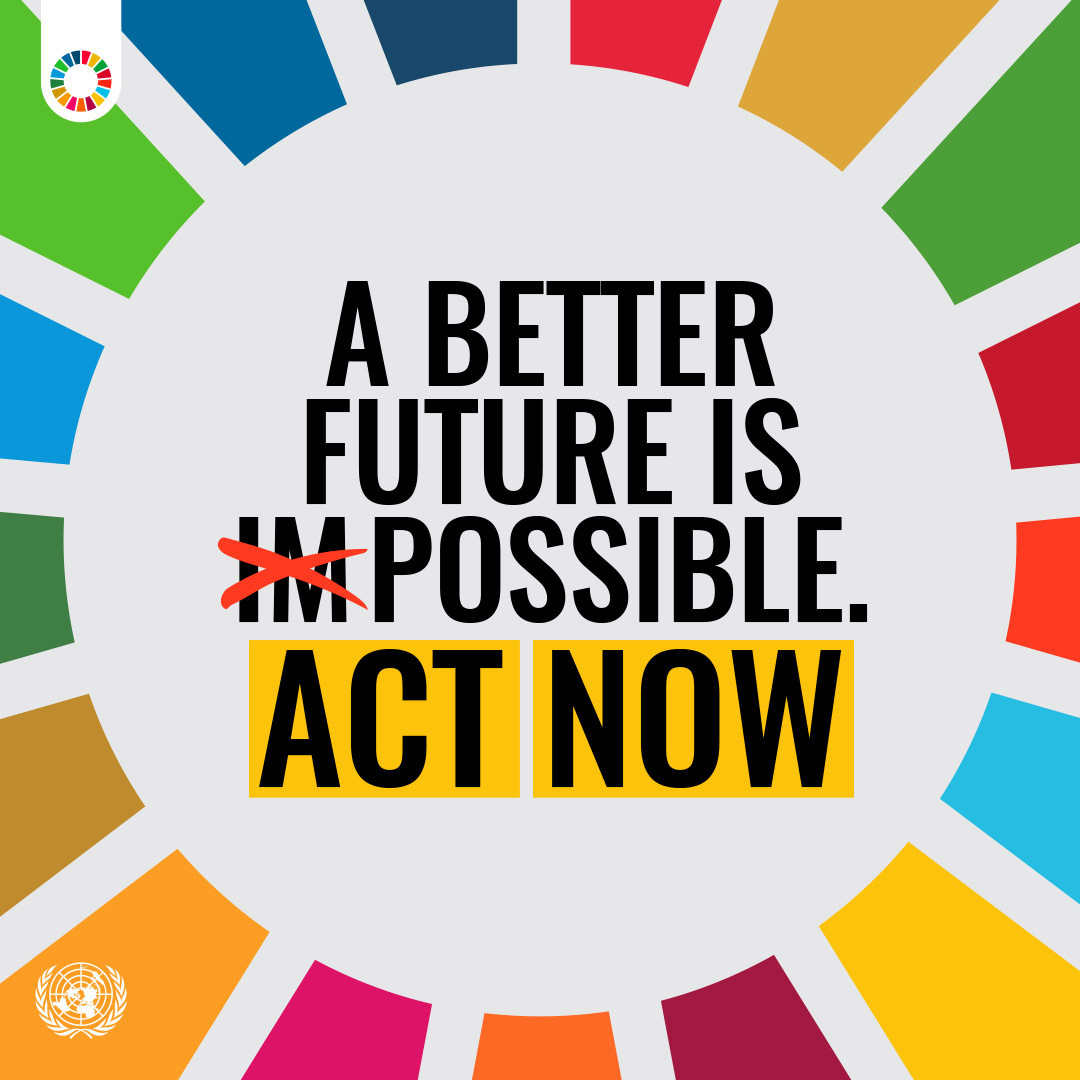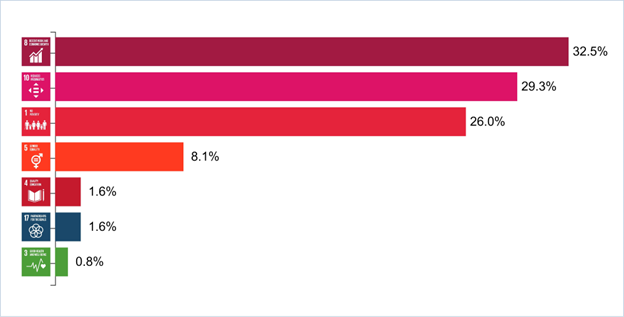How the SDGs push fuels the European integration?
October 3, 2023

SDGs are back on the policy table
“The Sustainable Development Goals aren’t just a list of goals. They carry the hopes, dreams, rights, and expectations of people everywhere,” underscored the UN Secretary-General António Guterres on the high-level forum at UN headquarters on September 15th, 2023. This unwavering commitment towards implementing the SDGs announced the renewed global efforts to rescue SDGs and compensate some of the development backsliding during the multiple crisis. Will a stronger focus on the UN 2030 Agenda for Sustainable Development burden the European integration agenda of the EU candidate and potential candidate countries? On the contrary, we argue that the two agendas are highly complementary and overlapping. The EU candidate and potential candidate countries from Western Balkans must seize the momentum, intensify the reform efforts, and accelerate sustainable development.
Synergies and Complementarities with the European integration
EU integration ranks very high on the policy agenda in the Western Balkans, with citizens traditionally being strongly supportive of the process. Therefore, governments and general public are more inclined to see the progress through the lenses of the EU accession process, or put differently, across the EU clusters and negotiating chapters. We argue that this progress will also be reflected in higher degree of attainment of the Sustainable Development Goals (SDGs). To increase the public awareness on the progress towards 2030 UN Agenda for Sustainable Development, we will emphasize complementarities and synergies with the European integration agenda.

What Does Machine Learning Suggest?
We make a use of the SDG mapping tool designed by the European Commission to better understand how EU-related policies and documents fit into the SDG framework. This analytical tool is based on a Natural Language Processing (NLP) algorithm for text analysis. We take into consideration the EC progress reports for North Macedonia during 2018-2022. The text of every EU negotiating chapter is mapped across all relevant SDGs. We find that some EU chapters tackle multiple SDGs, especially those related to upgrading institutional capacities (or Fundamentals, in the EU vocabulary). Let us say, Chapter 23 (Judiciary and Fundamental Rights), which is part of the first cluster “Fundamentals”, is strongly intertwined with SDG#16 Peace, justice, and strong institutions (52.4%); SDG#10 Reduced inequalities (23.7%); and SDG#5 Gender equality (9.4%). The full breakdown of interlinkages is provided in Figure 1.

Figure 1: SDG mapping of EU negotiating chapter 23: Judiciary and Fundamental Rights (Source: Authors’ use of the European commission’s SDG mapping tool; September 2023)
Another interesting example is Chapter 19 (Social Policy and Employment), which is mostly linked to SDG #8 Decent work and economic growth; SDG #10 Reduced inequalities; SDG #1 No Poverty, SDG #5 Gender equality, and to a lesser extent to SDG #4 Quality education, SDG#16 Peace, justice, and strong institutions; and SDG#7 Affordable and clean energy (see Figure 2).

Figure 2: SDG mapping of EU negotiating chapter 19: Social policy and employment (Source: Authors’ use of the European commission’s SDG mapping tool; September 2023)
This second stage of the process will be initiated once the new EC progress report for 2023 becomes publicly available. Once the text analysis is conducted for all 31 EU negotiating chapters, we construct a Sankey diagram presented in Figure 3. The diagram illustrates a complex and highly intertwined EU chapters and SDGs.

Figure 3. Interlinkages among EU negotiating chapters and SDGs (Source: Authors’ use of the European commission’s SDG mapping tool; September 2023)
Important to underscore, aspects of sustainable development goals and aspirations are not fully covered by the EU accession process. For instance, the themes of education and health, key components of human capital are not the core of the EU accession process but are a key enabler of sustainable development. For comparison, SDG #3 is solely devoted to good health and well-being and SDG#4 is devoted to quality education. Education and health are largely considered the responsibility of individual member states rather than EU-level competencies. Each member state has the autonomy to design and implement its policies based on its national needs and priorities. However, while education and health may not be directly covered in the EU accession, EU candidate countries are encouraged to align their education and health systems with EU policies and standards as part of the broader harmonization and approximation process. Here, the spotlight should be on human development and the aspirations outlined with the SDGs, particularly in areas where the EU accession process does not delve in depth.
The SDG Push is also a Push for European Integration
The EU accession is a merit-based process, characterized by conditionality and financial rewards (pre-accession funds during the EU accession stage as well as structural and cohesive funds for the less developed EU member states). The UN 2030 agenda has no conditionality attached. Its reward system is not expressed as a financial contribution, but rather as an accelerating progress along all dimensions of human development.
This year, North Macedonia was one of the 96 countries that developed an ‘SDG Insights’ report, aimed at providing evidence and insights on how governments can bridge the gap between the SDG ambition and our progress towards them. The report for our country outlined that investing in human capital, creating more decent jobs, enhancing scientific research, managing more sustainably the natural resources, and making the economy more sustainable, ensuring our decision making at all levels is inclusive, responsive, and participatory are just some of the ‘SDG interlinkages’ that reveal how actions directed towards one #SDG can impact the goals in a holistic manner. These interlinkages can also be seen as important parts of our EU accession journey, and as the text analysis of the EC assessment of progress in each EU negotiating chapter illustrates the European integration efforts are highly compatible and synergetic with the UN 2030 Agenda for Sustainable Development. Vice versa, the SDG push in Western Balkans – and North Macedonia, in particular – would accelerate the income convergence and reduce socio-economic gaps with respect to the EU member states. These efforts would require innovative mechanisms and instruments for scaling up SDG aligned investment and financing the SDGs, designing investment projects tackling multiple SDGs, and raising the awareness of the private sector and the general public. Therefore, the argument for an SDG push by all development partners is also an argument in favour of the EU integration efforts of the candidate and potential candidate countries from Western Balkans and Eastern European Partnership.

 Locations
Locations